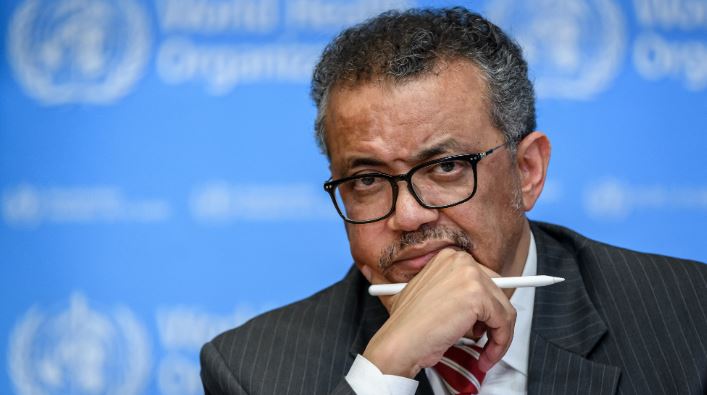
W.H.O. chief labels incidences of corruption related to COVID-19 PPEs as ‘murder’

World Health Organisation Director-General Dr. Tedros Adhanom Ghebreyesus on Friday branded incidences of corruption involving coronavirus personal protective equipment (PPE) as “criminal” and “murder”.
Ghebreyesus made the remarks at the end of a press briefing in response to a reporter’s question about protests by health workers over lack of PPE and poor working conditions and corruption allegations surrounding coronavirus-related equipment.
Ghebreyesus did not make any specific mentions of places where there have been allegations of corruption but he said that it “has to stop if it is happening anywhere.”
“Any type of corruption is unacceptable. Any level or any type of corruption is unacceptable. However, corruption related to PPE, life-saving…for me it is actually a murder. Because, if health workers work without PPE, we are risking their lives and that also risks the lives of the people they serve. So it is criminal and it is a murder,” Ghebreyesus said.
There have been allegations of corruption scandals involving PPEs in Africa in the last few weeks such as in Zimbabwe, Kenya and South Africa.
In Zimbabwe, the former Health Minister Obadiah Moyo was accused of illegally awarding a multi-million dollar tender to a company for the supply of COVID-19 drugs and personal protective equipment while fully aware the company was not a pharmaceutical but a consultancy firm.
Moyo was subsequently arrested and detained by police and eventually sacked by President Emmerson Mnangagwa.
South African authorities are investigating government departments for corruption over irregularities in coronavirus-related tenders worth 5 billion rand ($290 million).
The nation’s Public Protector is investigating tender irregularities in at least in three provinces, including over a quarantine site that is believed to be owned by a government official and PPE procurement in the KwaZulu-Natal province.
In Kenya, a government agency, the Kenya Medical Supplies Authority (KEMSA), is embroiled in a multi-million dollar COVID-19 procurement scandal.
The agency’s chief executive, Dr. Jonah Manjari, and two directors have already been suspended pending investigations into the allegations.
The lack of PPEs has caused uproar among health workers in several countries prompting many of them to threaten to down their tools or actually go on strike.
Ghebreyesus, however, cautioned that when health workers went on strike to air their grievances, it should not be in a way that affects the services they provide to those who need it most.
In May, a group of civil society organisations from across the world called on the International Monetary Fund to include anti-corruption measures in all its COVID-19 related emergency funding.
Citizens across Africa greeted the news of the approval of millions of dollars in emergency funding to their countries with derision and skepticism as they have very little faith that the funds will be used for their intended purposes.
Corruption hinders Africa’s economic and social growth, keeping millions of people in poverty and frightening off investors. Though it is not a unique phenomenon to the continent, it is admittedly a huge problem.
The organizations said that while there was urgency to provide funding to assist governments in their response, there was a greater need to ensure that the funds were channeled to their desired functions and were not misused.
The organizations also raised concerns that most IMF loan agreements included few or no government commitments to reduce the risk of corruption and instead appeared to rely on the good faith of governments and vigilance of independent monitoring groups.






